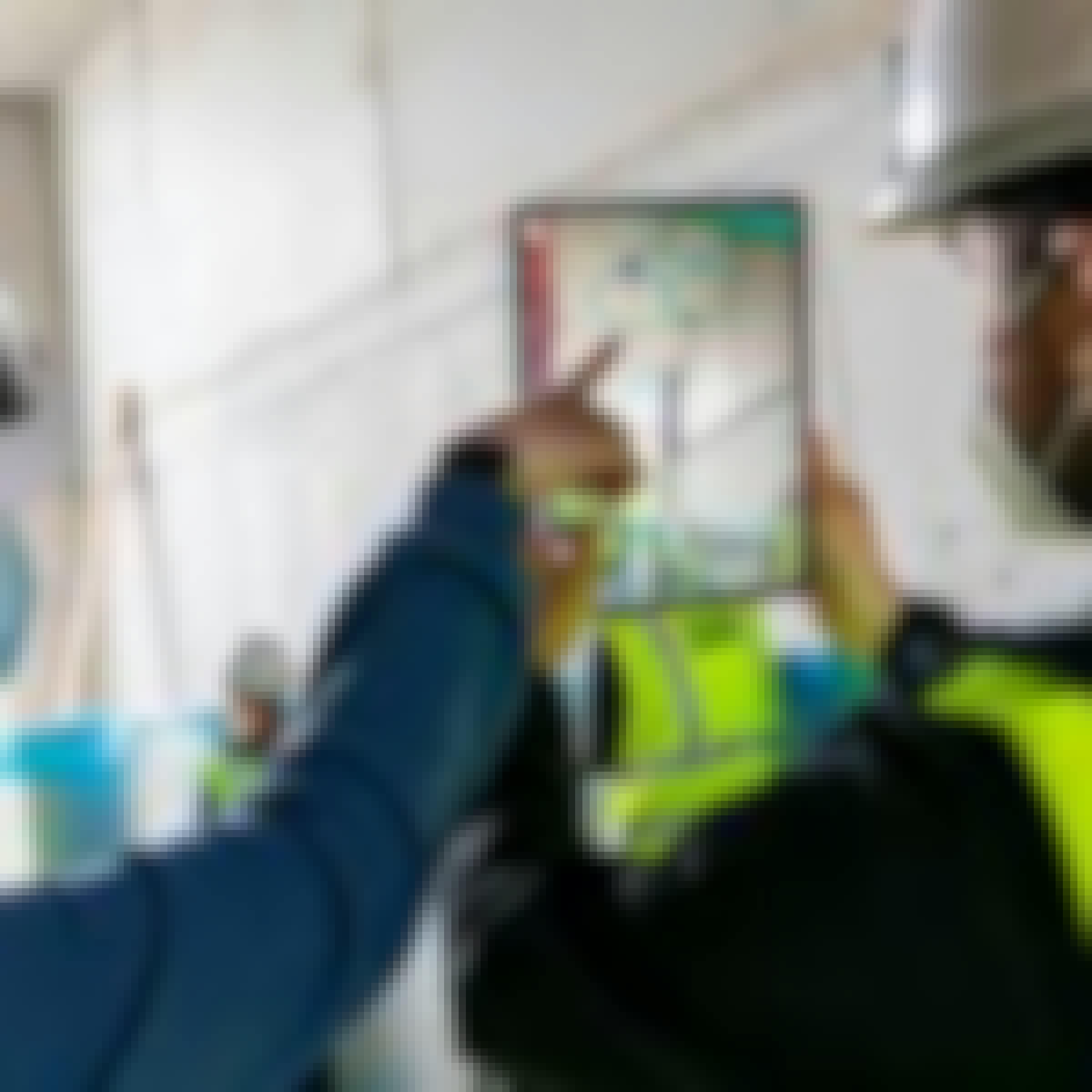Filter by
SubjectRequired
LanguageRequired
The language used throughout the course, in both instruction and assessments.
Learning ProductRequired
LevelRequired
DurationRequired
SkillsRequired
SubtitlesRequired
EducatorRequired
Explore the Patient Safety Course Catalog
 Status: Free Trial
Status: Free TrialL&T EduTech
Skills you'll gain: Structural Engineering, Construction Engineering, Engineering Management, Equipment Design, Construction Management, Engineering Practices, Engineering Plans And Specifications, Hydraulics, Architecture and Construction, Mechanics, Construction, Engineering, Engineering Design Process, Civil Engineering, Structural Analysis, Safety Assurance, Engineering Calculations, Mechanical Engineering, Engineering Analysis, Estimation

Universidad de Palermo
Skills you'll gain: Mental and Behavioral Health Specialties, Psychiatry, Mental Health Diseases and Disorders, Mental Health, Disabilities, Activities of Daily Living (ADLs), Behavioral Health, Neurology, Patient Treatment, Psychological Evaluations, Working With Children

Vanderbilt University
Skills you'll gain: Clinical Research, Patient Education And Counseling, Community Outreach, Clinical Trials, Health Equity, Health Disparities, Research, Healthcare Ethics, Interpersonal Communications, Community Health, Cultural Responsiveness, Cultural Diversity, Diversity Equity and Inclusion Initiatives
 Status: New
Status: NewCoursera Instructor Network
Skills you'll gain: Resource Utilization, Lean Methodologies, Operational Efficiency, Health Care Administration, Operations Management, Health Care Procedure and Regulation, Process Improvement, Systems Thinking, Health Technology, Workflow Management, Resource Allocation, Regulatory Requirements, Health Systems, Continuous Improvement Process, Cross-Functional Collaboration, Communication Strategies, Data-Driven Decision-Making
 Status: Free Trial
Status: Free TrialUniversity of Toronto
Skills you'll gain: Data Ethics, Data Collection, Quantitative Research, Qualitative Research, Data Analysis, Statistical Analysis, Analytics, Regression Analysis, Research, Focus Group, Correlation Analysis, Diversity and Inclusion, Surveys, Probability, Stakeholder Engagement
 Status: Free Trial
Status: Free TrialISAE-SUPAERO
Skills you'll gain: Risk Control, Vibrations, Safety Assurance, Mechanics, Engineering Analysis, Simulations, Mathematical Modeling
 Status: Free Trial
Status: Free TrialArizona State University
Skills you'll gain: Manufacturing Processes, Equipment Design, Manufacturing and Production, Process Analysis, Process Control, Thermal Management, Laboratory Testing, Safety and Security
 Status: Free Trial
Status: Free TrialSkills you'll gain: Environmental Regulations, Environmental Engineering, Process Engineering, Chemical Engineering, Production Process, Thermal Management, Three-Phase, Mechanical Engineering, Equipment Design, Safety and Security
 Status: Free Trial
Status: Free TrialSkills you'll gain: Peripheral Devices, USB, Operating Systems, Computer Hardware, Data Storage Technologies, Hardware Troubleshooting, Desktop Support, Networking Hardware, Linux, System Software, File Systems, Information Technology, Microsoft Windows
 Status: Free Trial
Status: Free TrialL&T EduTech
Skills you'll gain: Construction Engineering, Civil Engineering, Construction, Building Services Engineering, Civil and Architectural Engineering, HVAC, Public Works, Transportation Operations, Architecture and Construction, Construction Management, Structural Engineering, Engineering Design Process, Structural Analysis, Building Design, Facility Management, Emerging Technologies, Engineering Calculations, Energy and Utilities, Environmental Engineering, Architectural Design
 Status: Free Trial
Status: Free TrialL&T EduTech
Skills you'll gain: Construction Engineering, Civil Engineering, Electrical Systems, Transportation Operations, Building Information Modeling, Construction Management, Structural Engineering, Architectural Design, Quality Assurance, Emerging Technologies, Safety and Security
 Status: Free Trial
Status: Free TrialL&T EduTech
Skills you'll gain: Building Information Modeling, Construction Management, Construction, Construction Engineering, Autodesk Revit, Commercial Construction, Construction Estimating, Emerging Technologies, Civil and Architectural Engineering, Architectural Engineering, Facility Management, Collaborative Software, Cloud Computing, 3D Modeling, Document Management, Visualization (Computer Graphics), Data Integration, Internet Of Things, Estimation, Digital Transformation
Patient Safety learners also search
In summary, here are 10 of our most popular patient safety courses
- Strategies for Heavy Lifting: L&T EduTech
- Introduction to ADHD: What It Is and How It’s Treated: Universidad de Palermo
- Faster Together, Enhancing the Recruitment of Marginalized Communities in Clinical Trials: Vanderbilt University
- Operations Management in Healthcare- Streamlining Systems : Coursera Instructor Network
- Inclusive Analytic Techniques: University of Toronto
- Flight mechanics - Lift and trajectory: ISAE-SUPAERO
- Selective Laser Sintering and Metal Laser Powder Bed Fusion: Arizona State University
- From Wellhead to Refinery: Midstream Oil and Gas Processing: L&T EduTech
- Foundations of Computer Hardware and Storage: Packt
- Infrastructure for Transportation Systems: L&T EduTech










